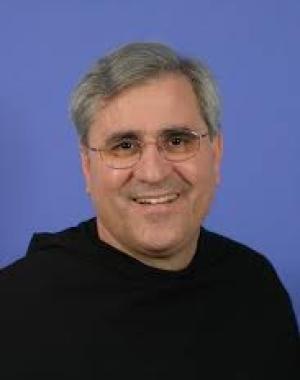The purpose of this article is to answer the title-question as succinctly as possible from within the framework of the Second Vatican Council and subsequent papal interpretation by Pope St. John Paul II in Veritatis Splendor (VS). First we must understand two terms in order to more fully grasp the meaning of conscience and how it operates in life, namely, the terms “freedom” and “truth.”
Truth That Sets Us Free
Freedom and truth are uniquely tethered to one another in the Gospel of John where Jesus says, “If you remain in my word, you will truly be my disciples, and you will know the truth, and the truth will set you free” (8:31-32). The first thing to note is that truth here is not a mere concept, but a person: the second Person of the Blessed Trinity Incarnate. Truth here is not an ideology; it is neither propaganda, nor can it be reduced to a set of theological propositions. The fullness of truth is a Person, Jesus Christ, the Word Incarnate, who died and rose again. The fathers of the Second Vatican Council proclaimed as much in Dei Verbum (no. 4) in their treatment of Revelation, taking their cue from the First Letter of John who spoke of “the Word of life – for the life was made visible; we have seen it and testify to it and proclaim to you the eternal life that was with the Father and was made visible to us” (1:1-2).
The Council fathers did not intend to divorce Catholic doctrine (truth) from the Person of Christ (the fullness of truth) in their account of Revelation. Rather, they intended to teach something more profound about truth, namely, its power to summon, call, beckon, entreat, instruct, and even lay claims to our freedom. Truth shines like light in the darkness (Jn 1:5), similar to what St. Paul taught when he wrote: “For God who said, ‘Let light shine out of darkness,’ has shone in our hearts to bring to light the knowledge of the glory of God on the face of Christ” (2 Cor 4:6). There is splendor in truth whereby we can legitimately speak of being addressed by veritatis splendor. Jesus made this clear before Pilate when he said: “For this I was born and for this I came into the world, to testify to the truth. Everyone who belongs to the truth listens to my voice” (Jn 18:37).[i]
In coming to know this truth, which is to say, by remaining in Christ, the Light of the World (Jn 8:12), we are set free. We are freed primarily for love, since there can be no love without freedom; and freedom for the purposes of this article is defined as: self-possession through realization of the good. If love is a ready self-donation or laying down one’s life for one’s friends (Jn 15:13), then one obstacle to love surely includes being insufficiently self-possessed as to render an authentic gift of oneself more difficult; there’s “no one” to give. Being set free in further “finding oneself” through realization of the good, however, means that the abuse of freedom is possible as well, such that evil follows. In the experience of evil, we do not so much give ourselves as throw ourselves away, thereby becoming “lost” (Lk 15). Such evil actions steadily lead to lesser degrees of freedom as we throw ourselves away instead of preparing the gift in and through greater self-possession. Greater self-possession is another way of conceiving the truth that in giving ourselves, we find ourselves (Gaudium et Spes [GS] no. 24). This was why Jesus counseled us: “Do not give what is holy to dogs, or throw your pearls before swine, lest they trample them underfoot, and turn and tear you to pieces” (Mt 7:6). Evil is what evil does, ending by “tearing you to pieces,” stealing “you” away along with your self-possession and freedom by trampling them underfoot. This is a distinctive way of “losing oneself” that is pleasing neither to God nor to Jesus Christ whom he sent.
The rest of this online article is available for current Guild members.
This article is from The Catechetical Review (Online Edition ISSN 2379-6324) and may be copied for catechetical purposes only. It may not be reprinted in another published work without the permission of The Catechetical Review by contacting [email protected]


















